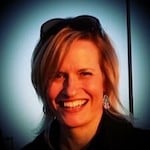Nick Esposito describes himself as “a loud defender of justice” and a “high-energy guy who never slows down”—two character traits he has put to good use as the loving husband and attentive caregiver to his high-school sweetheart, Theresa.
Nick, Theresa, and their three, now-adult sons have always been a close-knit family that leans on each other for everything. That camaraderie was essential once Theresa was diagnosed with Amyotrophic Lateral Sclerosis (ALS or Lou Gehrig’s Disease) at 44 years old. ALS is a nervous system disease that weakens muscles, subsequently impacting physical function. “Our world was shaken to its very core,” explains Nick. “The love of my life was sick and there was nothing I could do to help her. When she was diagnosed, we were told to not believe in miracles ‘because there are none’ and to enjoy what life she had left.”
However, Theresa did not lay down and concede, Nick says. “Instead, she ran forward, unwilling to accept the fate given to her.” Because there is no cure, Nick and Theresa researched and tried everything they could to slow the disease’s progression. She became vegan, went organic, removed her silver fillings, tried experimental drugs, and even addressed Congress to advocate for an ALS registry to collect and analyze data about those living with the disease (now available). Ten years post-diagnosis, the ALS Society was amazed by her results, telling her they saw no reason she couldn’t live another 10+ years. With an average lifespan of two to five years after diagnosis, Nick says her prognosis is nothing short of the miracle she was told didn’t exist so many years ago.
Says Nick: “Theresa is an amazing person. She is a role model to family, friends and really anyone she encounters. She is my motivation in life. How could I possibly slack off when she has to watch her every step so she doesn’t fall?”
Nick and Theresa have both always loved—and now live at—the New Jersey shore. Today, 16 years into her diagnosis, Nick says they have been able to ride bikes with their two grandsons (hers is a special bike with a rechargeable motor), stroll the boardwalk and play an active role in the family. However, Nick and Theresa quickly learned how challenging it is for a disabled person to enjoy the beach. After finding out that special “beach wheelchairs” can be reserved at local beaches, they were thrilled…and soon found out that it was also a game changer for other families, as they’ve been stopped regularly from people seeking more information.
After reserving one for a week while on vacation in a nearby town, a man showed up at their rental home’s door to deliver the wheelchair and asked for a $100 rental fee. Nick was puzzled, as they have always been free to reserve. The man explained that, after beach patrol loaned out their free wheelchairs, this company took over and charged families for the equipment. Frustrated, Nick turned down the chair and confronted the company’s owner. “The owner was unapologetic and said he was providing a ‘service,’” says Nick. “But unlike typical beach accessories, handicapped people can’t even get to the beach without a beach wheelchair. So I am determined to put him out of that business.”
Nick and Theresa have begun the process of forming a non-profit that will allow them to do just that. They envision meeting families at their vacation rentals with a (free) beach wheelchair, as well as other helpful materials, like a list of local handicap-friendly restaurants, stores, and events. In their next stage, he dreams of hiring college-aged students to man beach entrances and assist families with set-up, tear-down, and getting settled in their spot…but in the meantime, Nick helps people get on and off the beach himself with their own equipment. They also hold benefits to raise money for the ALS Association until they can do the same for their own non-profit.
Nick says this story is the best explanation of why they have carefully mapped out these dreams: “My wife and son were on the beach one day, when a man approached them, asking if he could rent our beach wheelchair. He said, ‘Today is my mother’s birthday. See that group of 30 people? That’s my family. My mom hasn’t been on the beach in 10 years—or felt the ocean in 15—so we want to have her birthday celebration there.’ We watched as the family had a wonderful afternoon together. She beamed as they took her down to the water. When the man returned the chair to us, he was crying. He thanked us for making his mom’s day so special. The good feelings generated by that simple act assured us that we were on the right path. That day solidified our decision to carry out this mission.”


